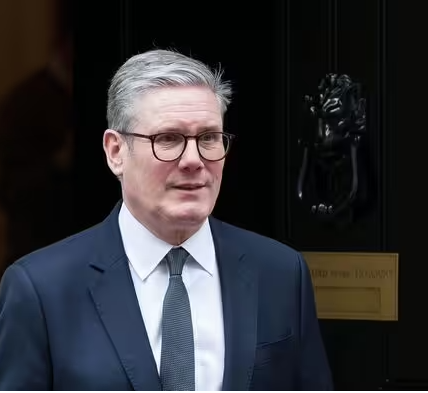Sir Keir Starmer and Rachel Reeves are escaping “awful April” bill increases because they live in taxpayer-subsided accommodation. Households across the country face higher energy, water and council tax bills which will leave them £1,000 worse off according to Conservatives – coming on top of £3,536 in lost income due to Labour increasing employer National Insurance contributions.
But the Prime Minister and his Chancellor pay a set amount for their grace and favour flats in Downing Street, which has a fixed limit. The sum is capped at 10 per cent of their ministerial salaries, meaning they each contribute around £3,000 to cover all bills, and the amount cannot go up. Sir Keir earns £169,000 as Prime Minister and an MP while Ms Reeves is paid around £161,000.

Keir Starmer and Rachel Reeves (Image: Getty)
The pair also benefit from chauffeur-driven cars which means they suffer less from increases in the cost of motoring.
Most households in England will face the maximum increase of 4.99%, and this means the average council tax bill on a typical band D property is going up by £109 a year, to £2,280.
In addition, a survey of council leaders and chief executives by think tank the Local Government Information Unit found 88% of councils, almost nine out of ten, are planning to increase charges on services “from everyday expenses like car parking, planning and green waste collection, to more emotive areas such as social housing rent, school dinner charges, and burial and cremation charges.”
The think tank said: “Many respondents explicitly stated that these increases would be at above-inflation rates”
Broadband and phone bills are rising while the cost of a TV licence and the standard rate of car tax are both going up by £5, and electric vehicles will no longer be exempt.
With the average household already spending £2,062 on essentials each month, analysts believe the latest increases could add another £49.45 to this figure.
Campaigners have accused the water regulator Ofwat of unlawfully forcing customers to foot the bill for “decades of neglect” by the water industry.
River Action has launched a legal challenge against the watchdog on the day that customers’ bills rise by an average of £123 a year.
Prime Minister Sir Keir Starmer acknowledged rising bills were putting pressure on household finances but insisted wage increases would leave people better off.
He told Sky News: “I think for most people, they would say the cost-of-living crisis is ongoing, and they feel the pressure financially.
“That’s why it’s so important we make good on our pledge that people would feel better off and the national living wage going up today by an average of £1,400 is going to affect millions of people, so in their pay packet this month, and obviously for months to come, they will now be getting more money.
“That’s alongside the other work we’ve done – interest rates have been cut three times since we’ve had a Labour government, so anybody with a mortgage knows that the rates are coming down, and of course, on average, wages going up now more quickly than prices.
“I acknowledge that with bills coming in, people see that rise and that is a pressure. That is why it’s so important we deliver on the national living wage, to make sure people are better off – £1,400, quite a significant amount of money for millions of workers.
“Making sure that interest rates are coming down not going up, that makes a big difference, wages going up higher than prices.”
Our community members are treated to special offers, promotions, and adverts from us and our partners. You can check out at any time. Read our Privacy Policy
The impending rise in employers’ national insurance is having a “massive impact” on young people seeking work, Conservative leader Kemi Badenoch has said.
Supermarkets have been “shedding jobs” and hairdressers cannot afford to take on new staff, the Conservative Party leader said ahead of employer national insurance contributions rising on April 6.
She told LBC: “The rise in the threshold for where you pay national insurance has meant that lots of people who didn’t cost as much to hire now do – that’s having a massive impact on young people.
“People who take on apprentices have stopped. So hair salons, for instance, have been one of the businesses that have screamed the most that they’re just not able to afford to take on new staff.
“And it’s affecting sectors like that, hospitality, anyone who takes on young people is going to be severely impacted.
“But the truth is, everybody’s impacted. The supermarkets have been shedding jobs.
“Lots of people are saying that if they’re going to afford such a high wage bill, they either have to pay level wages, stop hiring, and in some extreme cases, just stopped business altogether.”

